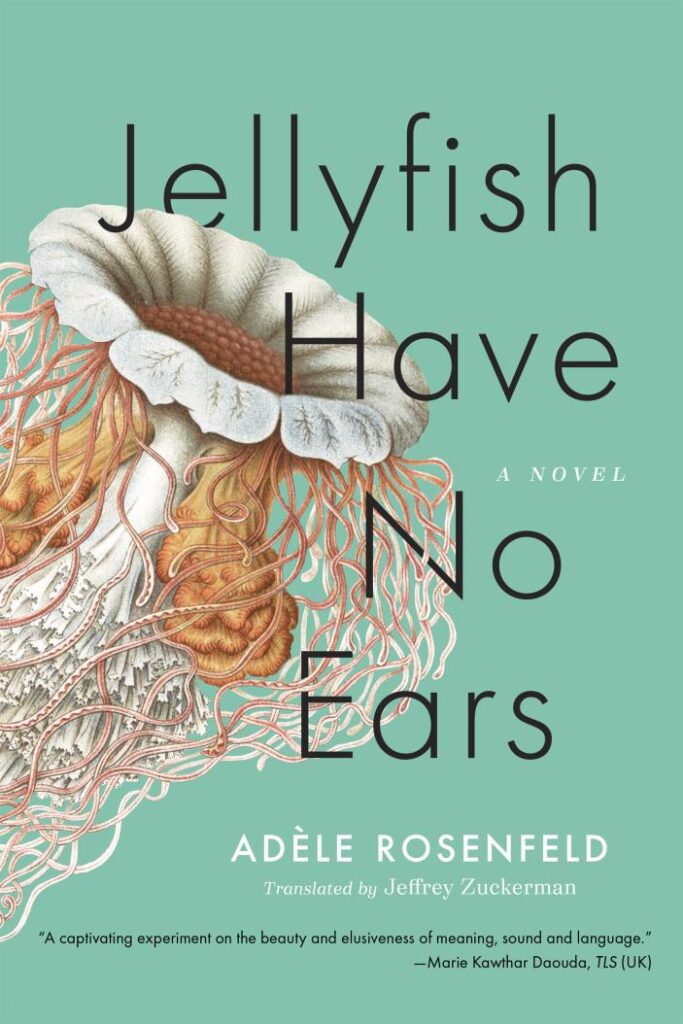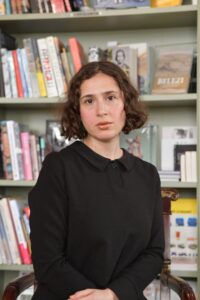Les Méduses n’ont pas d’oreilles by Adèle Rosenfeld

This totally original novel is as much about describing language as it is about telling a story. The protagonist, Louise, is partially deaf and has been her whole life. She has gotten used to this equilibrium, sort of able to hear, terrified of the phone and similar interactions, adept at reading lips. But when her hearing starts to deteriorate, her doctor offers her a cochlear implant, which would necessarily destroy the rest of her natural hearing. Louise hesitates. She has learned how to move through a world a certain way.
Rosenfeld herself has a cochlear implant, as does her English translator, the acclaimed Jeffrey Zuckerman. Rosenfeld has a delicate ear for language, for the kinds of poetic misunderstandings that come from associative word pairings, from rhyme, from the lacunae of silences that her imagination rushes to fill. The world of sound is precious and mysterious and evocative. A question mark becomes a pucker on plump lips. The neighbors’ washing machine sounds like an earthquake. When Louise takes ecstasy with her best friend Anna, her sonic world becomes distorted and awash with new kinds of sound. She thinks she can hear Anna’s breath between her ribs, the asthmatic whistle on her voice; she hears a man licking his lips.
Because this is also a coming of age story. While Louise agonizes over the cochlear implant choice, she is also falling in love, navigating problems at work, learning and exploring. She hallucinates a series of imaginary friends who follow her around, including a botanist who slowly metamorphoses into a tree. It is a symbol, a specialist dryly informs her, of getting rooted in her traumas, of stuckness. The way out of stuckness, apparently, is the cochlear implant. But Louise isn’t so sure. She reads the story of a young orphaned boy in mid century Bucharest who grew up speaking no language and was nearly deported by the Nazis. When he was finally granted French citizenship later in life, he resisted this linguistic identity by killing himself. Language was a no man’s land for him, a place he would never belong.
Louise chooses belonging, but like the eponymous jellyfish, hearing will never be how she is oriented towards the world. She reads lips, she smells, she touches, she senses. Her world emerges in glorious detail, enticing and strange.
Jellyfish have no Ears by Adèle Rosenfeld, Graywolf Press, translated from the French by Jeffrey Zuckerman
Click here to purchase this book with us.


